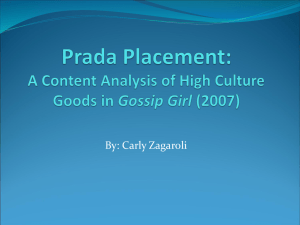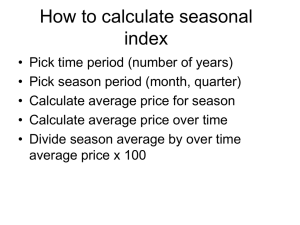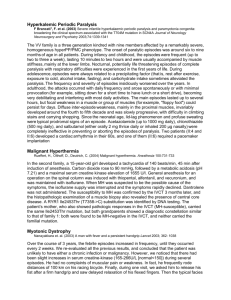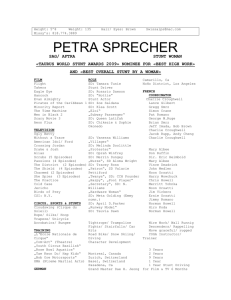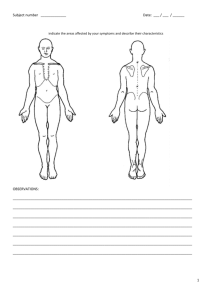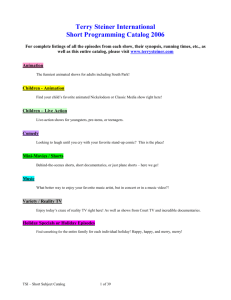The Wire
advertisement
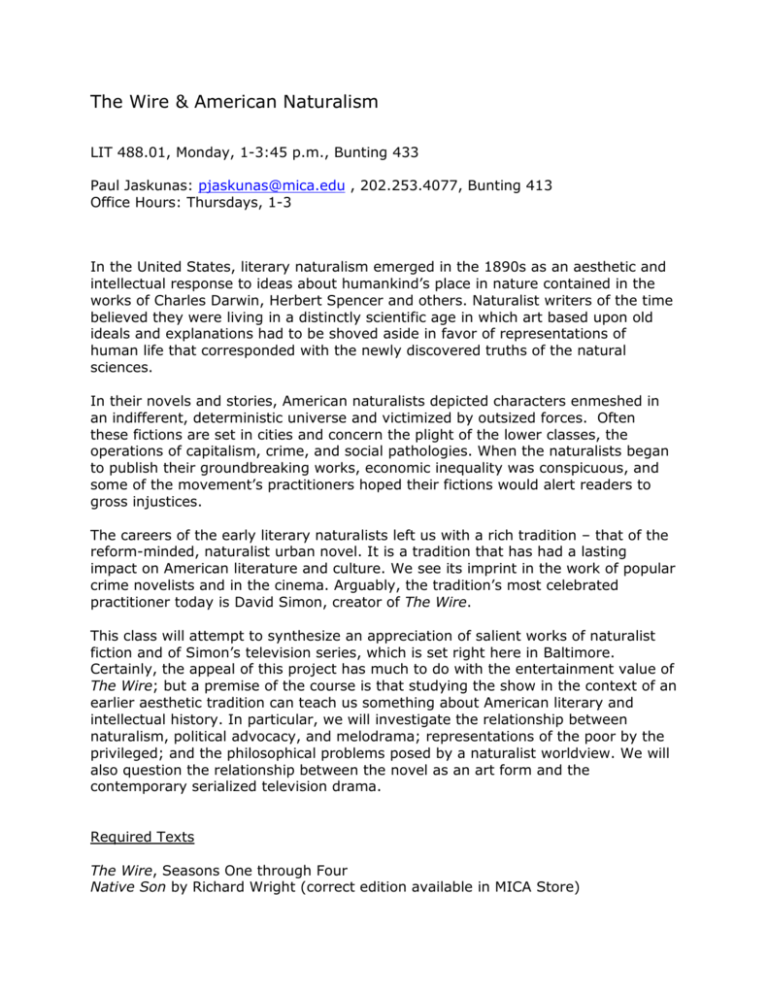
The Wire & American Naturalism LIT 488.01, Monday, 1-3:45 p.m., Bunting 433 Paul Jaskunas: pjaskunas@mica.edu , 202.253.4077, Bunting 413 Office Hours: Thursdays, 1-3 In the United States, literary naturalism emerged in the 1890s as an aesthetic and intellectual response to ideas about humankind’s place in nature contained in the works of Charles Darwin, Herbert Spencer and others. Naturalist writers of the time believed they were living in a distinctly scientific age in which art based upon old ideals and explanations had to be shoved aside in favor of representations of human life that corresponded with the newly discovered truths of the natural sciences. In their novels and stories, American naturalists depicted characters enmeshed in an indifferent, deterministic universe and victimized by outsized forces. Often these fictions are set in cities and concern the plight of the lower classes, the operations of capitalism, crime, and social pathologies. When the naturalists began to publish their groundbreaking works, economic inequality was conspicuous, and some of the movement’s practitioners hoped their fictions would alert readers to gross injustices. The careers of the early literary naturalists left us with a rich tradition – that of the reform-minded, naturalist urban novel. It is a tradition that has had a lasting impact on American literature and culture. We see its imprint in the work of popular crime novelists and in the cinema. Arguably, the tradition’s most celebrated practitioner today is David Simon, creator of The Wire. This class will attempt to synthesize an appreciation of salient works of naturalist fiction and of Simon’s television series, which is set right here in Baltimore. Certainly, the appeal of this project has much to do with the entertainment value of The Wire; but a premise of the course is that studying the show in the context of an earlier aesthetic tradition can teach us something about American literary and intellectual history. In particular, we will investigate the relationship between naturalism, political advocacy, and melodrama; representations of the poor by the privileged; and the philosophical problems posed by a naturalist worldview. We will also question the relationship between the novel as an art form and the contemporary serialized television drama. Required Texts The Wire, Seasons One through Four Native Son by Richard Wright (correct edition available in MICA Store) Additional reading will be distributed in class or by electronic mail. Course Work Prep Papers: In advance of six of our class meetings, you will be required to post on ‘Moodle’ a response to a discussion question posed by either the professor or graduate teaching assistant. Your response should reflect rigorous engagement with the text or episodes in question and close attention to detail. What you submit will form the basis of class discussion, so consider the work you put into these papers a high priority. At least three of the six required submissions must be submitted before Spring Break; aside from this requirement, I leave up to your discretion when you do the work. Prep papers should be at least 300 words in length. Midterm Exam: On March 26 there will be an in-class essay exam. Final Exam: On the last day of class, there will be an in-class essay exam. Alternatively, you can write a seven- to eight-page analytical essay. Plagiarism Submitting work containing plagiarism is grounds for failure of an assignment or failure of the course. Repeat offenses will be brought to the attention of the Chair. To be responsible when summarizing, paraphrasing, or quoting, include a citation like: “I read in yesterday’s New York Times that…” “As Simone de Beauvoir famously asserts: ‘One is not born, but rather becomes, a woman.’” “My roommate Pete noticed that…” Document your citations in a bibliography at the end of your paper and follow standard guidelines such as MLA or Chicago manual style. Familiarize yourself with these guidelines in Diana Hacker’s A Pocket Style Manual, and always check with your instructor before turning in questionable work. Evaluation Prep Papers: 30 percent of final grade / Participation: 20 percent / Midterm exam: 20 percent / Final exam: 30 percent Class Attendance Three unexcused absences will result in failure of the class. If you need to discuss your attendance with me at any time, e-mail me at pjaskunas@mica.edu. ADA Compliance Statement Any student who feels s/he may need an accommodation based on the impact of a disability should contact the instructor privately to discuss specific needs. Please contact the Learning Resource Center at 410-225-2416, in Bunting 458, to establish eligibility and coordinate reasonable accommodations. For additional information please refer to: http://www.mica.edu/learningresourcecenter/. For Health and Safety Compliance information, see the upper right-hand corner of the MOODLE page for this class. Class Schedule (subject to change) 1/23 Introduction 1/30 Season Two, episodes 1-3 Reading: Crane’s Maggie (handout) 2/6 Season Two, episodes 4-5 Reading: Zola’s “The Experimental Novel” (handout) 2/13 Season Two, episodes 7-8 Reading: Dreiser and Norris (handouts) 2/20 Season Two, episodes 10-end Reading – Arthur Miller’s “Tragedy for the Common Man” (handout) 2/27 Season Three, episodes 1-3 Reading: Simon profiles; excerpt from The Corner 3/5 Season Three, episodes 5-7 Reading: TBD 3/12 Spring Break 3/19 Season Three, episodes 9-11 Reading: TBD 3/26 Midterm 4/2 Season Four, episodes 1-3 Reading – Native Son (introduction and Book One) 4/9 Season Four, episodes 4-6 Reading – Native Son (Book Two) 4/16 Season Four, episodes 8-10 Reading – Native Son (Book Three and “How Bigger Was Born”) 4/23 Season Four, episodes 11-12 4/30 Final Exam

